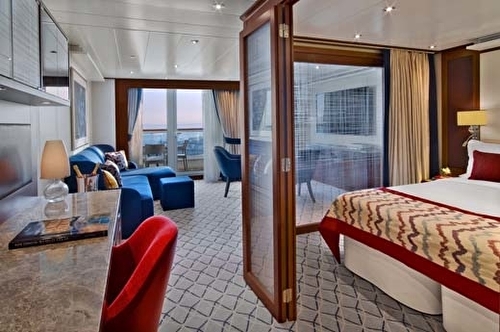Sweden, Norway, Denmark & Belgium
- 18 Jul ‘26
- 7 nights
- Departing from Copenhagen
- Seabourn Ovation
-
Inside price fromCall for price
-
Outside price fromCall for price
-
Balcony price fromCall for price
-
Suite price fromCall for price
YOUR ITINERARY
Copenhagen, Denmark - Skagen, Denmark - Gothenburg, Sweden - Oslo, Norway - Kristiansand, Norway - Antwerp, Belgium - Dover (London), England












Denmark’s capital is arguably one of the worldR...
At the tip of the flat, sandy Jutland peninsula, Skagen is Denma...
Gothenburg is situated on the Göta älv Ri...
Norway’s capital lies at the head of the maj...
Situated on the southern tip of Norway, Kristiansand is a pl...
The true Flemish name of Belgium’s second city is ...
Crossing the English Channel from continental Europe to Great ...
YOUR SHIP - The Seabourn Ovation
Introducing Seabourn Ovation, the sister-ship to the already prestigious Seabourn Encore. Seabourn Ovation represents another welcome stage in the evolution of small ship cruising, which Seabourn pioneered and has consistently expanded and enriched for all of our small ship cruises. Both ships will deliver a wealth of new concepts, a fresh vision and a host of illuminating ideas to delight the world’s most discerning travelers.
Introducing Seabourn Ovation, the sister-ship to the already prestigious Seabourn Encore. Seabourn Ovation represents another welcome stage in the evolution of small ship cruising, which Seabourn pioneered and has consistently expanded and enriched for all of our small ship cruises. Both ships will deliver a wealth of new concepts, a fresh vision and a host of illuminating ideas to delight the world’s most discerning travelers.
Description
Introducing Seabourn Ovation, the sister-ship to the already prestigious Seabourn Encore. Seabourn Ovation represents another welcome stage in the evolution of small ship cruising, which Seabourn pioneered and has consistently expanded and enriched for all of our small ship cruises. Both ships will deliver a wealth of new concepts, a fresh vision and a host of illuminating ideas to delight the world’s most discerning travelers.
Food and Drink
Coffee Bar
Dining Room
Mariners Patio Bar
Sky Bar
The Colonnade
Entertainment
Photo Gallery
Recreational
Card Room
Relaxation
Spa
The Retreat
Whirlpool
Other
Conference Room
Medical Centre
Observation Deck
Shops
The Terrace
STATEROOMS
SIMILAR CRUISES
-
DateTripCruise ShipNightsPrice
-
2026-08-01Sweden, Norway, Denmark & BelgiumSeabourn Ovation- 7Nights7
*Based on Twinshare cabin



